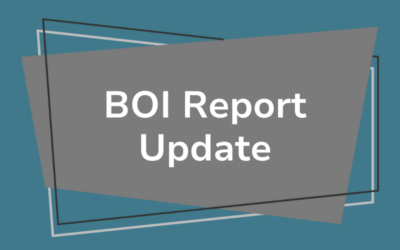Eventually, an employee’s pay remitted to FICA (and the monies paid by their employer) will benefit the employee in the future. Social Security tax provides financial benefits to retired individuals, disabled Americans, and survivors of deceased citizens. Medicare tax funds the federal health insurance program that covers individuals 65 and older, disabled individuals, and people with end-stage renal disease.
Before hiring employees, business owners should learn about all employment taxes — including FICA. Consider getting guidance from a trusted tax professional who can advise you on your responsibilities. In the meantime, I’ll share some information here to help you learn about what’s involved.
What Percent Is FICA and Who Must Pay It?
Both employers and employees pay into FICA. The 15.3% FICA tax consists of a 12.4% Social Security tax and a 2.9% for Medicare tax.
- Employers and employees must each pay 6.2% of the employee’s taxable income into FICA for Social Security.
- Employers and employees must each pay 1.45% of the employee’s taxable income into FICA for Medicare.
Employers are responsible for withholding 0.9% Additional Medicare Tax on an employee’s (single filer) wages paid in excess of $200,000 in a calendar year. That threshold is $250,000 for married filers and $125,000 for individuals who are married filing separately.
Generally, employers must withhold Social Security and Medicare taxes from wages of nonresident alien employees, with some exceptions.
Each year, the IRS issues its Employer’s Tax Guide, which explains updates to employment-related taxes and other crucial payroll-related information. Consider reviewing that resource — along with getting guidance from an employment tax professional — to ensure you’re handling FICA and other payroll taxes correctly.
What Are the FICA Limits for 2023?
Social Security tax has a wage base limit. In other words, when an employee’s wages reach a certain threshold in a tax year, their earnings beyond that dollar amount are not subject to Social Security tax. In 2023, that earnings threshold is $160,200.
All gross income is subject to Medicare tax. As I mentioned earlier, employers must withhold an additional 0.9% (a total of 3.8%) on an employee’s earnings of more than $200,000 (if filing single), $250,000 (if filing married), $125,000 if filing married separately).
How to Calculate FICA Taxes
FICA is applied to an employee’s taxable compensation, which is gross pay minus pre-tax deductions (such as 401K contributions, health insurance premiums, and health savings account contributions).
Employers must withhold funds from their employees’ pay for FICA and submit those monies, along with the employer’s half of FICA, to the IRS.
Employers are required to deposit FICA payroll taxes either monthly or semi-weekly, depending on their total tax liability.
Reporting FICA to the IRS
Businesses must obtain an Employer Identification Number (EIN) from the IRS to report, withhold, and deposit FICA taxes.
Generally, employers who withhold federal income tax, Social Security, or Medicare taxes must file Form 941, Employer’s Quarterly Federal Tax Return, each quarter. Employers with small businesses who qualify to file Form 944 instead of Form 941 must file annually. To qualify to use Form 944, the employer must receive written notification from the IRS.
Tax deposit due dates differ from the due dates for filing the returns used to report employment taxes, past filing history, and other factors.
FICA Tax Exemptions
While the wages of most employees are subject to FICA, a few exemptions exist. I’ve listed several of them below.
- FICA taxes do not apply to services performed by students employed by a college, university, or school where the student is pursuing a course of study.
- Foreign students temporarily present in the U.S. (i.e., with non-immigrant status) if their employment is allowed by the U.S. Citizenship and Immigration Services (USCIS).
- Individuals in certain religious groups must submit IRS Form 4029 (Application for Exemption from Social Security and Medicare Taxes and Waiver of Benefits) to request an exemption.
Do Self-Employed People Pay FICA?
Independent contractors and other self-employed individuals must also pay into Social Security and Medicare, as mandated by the Self-Employment Contributions Act (SECA). Rather than calling those contributions FICA, they’re called self-employment taxes. The total percentages (12.4% Social Security and 2.9% Medicare) are the same as for FICA, and the self-employed person must pay the entire amount (since they don’t receive a paycheck from an employer). Schedule SE (Form 1040) can help them calculate approximately how much tax is due on their self-employment earnings.
FICA vs. FUTA
Both FICA and the Federal Unemployment Tax Act (FUTA) are federal programs. However, no money is deducted from employees’ paychecks for FUTA. The FUTA tax is paid by employers to help fund unemployment benefits for employees who lose their jobs through no fault of their own. After an employer has paid at least $1,500 to employees in any calendar quarter, they must pay the 6% FUTA tax on the first $7,000 paid to each employee during the year.
FICA vs. FIT
Employment taxes include both FICA and Federal Income Tax (FIT). The percentage of income withheld from an employee’s pay for FIT is determined by information the employee provides on their W-4 Form. Unlike FICA, FIT is not a tax obligation of the employer. Yes, the employer withholds money from the employee’s paycheck and remits it to the federal government, but the employer does not pay any portion of the employee’s federal income tax responsibility.
Employment Tax Resources
The IRS website has a lot of information about FICA in its Employer’s Tax Guide. Unfortunately, tax matters are rarely black and white. I strongly recommend that business owners talk with an accountant or other tax professional to understand their obligations and the nuances of their situation.
Learn more about payroll processing:
- What is Payroll?
- What are Payroll Deductions?
- What are Payroll Taxes?
- What is FUTA Tax?
- What is Payroll Processing?
- What is Reasonable Compensation for an S Corporation
- How Do You Set Up Payroll for an LLC or Corporation?
- How Do You Pay Yourself as a Sole Proprietor?
- How Do LLC Owners Get Paid?
- Hiring Family Members in a Small Business
- Independent Contractors vs. Employee
- What Every Small Business Should Know About 1099s
Register for Payroll Taxes
CorpNet can quickly register your new business for State Unemployment Insurance Tax (SUI) and State Income Tax (SIT). Our specialists manage the process of payroll tax registration so that virtually no work is required on your part. We do the work so you can worry about growing your business.





